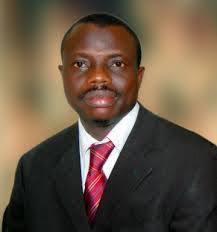Case management/care coordinator role
Case management refers to a systematic process by which the nurse assesses clients’ needs, plans for and co-ordinates services, refers to other appropriate providers, and monitors and evaluates progress to ensure that clients’ multiple service needs are met.
Hospitals can be overwhelming, intimidating, and, indeed, dangerous places, without someone to guide you and keep you informed. The nurse is the point person for all collaborating departments: medicine, pharmacy, nutrition, social work, physical and occupational therapy, surgery, etc.

Nurses ensure a patient’s safe passage through the hospital and organise care coordination in order to maximise timeliness, value, and efficiency and minimise injury, error, and inconvenience. Research has shown that nursing care coordination contributes in reducing overall charges, triggering significant increases in survival with notable decreases in relapses, complications and readmissions, ensuring improved quality care delivery, and enhancing overall patient satisfaction.
If you want to know how the countless spokes of any major medical centre’s wheels rotate with such a cohesive sense of safety, ask your nurse.
Collaborator role
Nurses seldom practice in isolation. They must work with many people, including clients, other nurses, physicians, pharmacists, social workers and community leaders, therapists, nutritionists, occupational therapists, psychologists, epidemiologists, biostatisticians, legislators, etc., as a member of the health team (Fairly 1993, Williams, 1986).
The nurse thus assumes the role of a collaborator, which means to work jointly in a common endeavour, to co-operate as partners.
Leader role
As a leader, the nurse directs, influences, or persuades others to effect change that will positively affect people’s health. The leadership role’s primary function is to effect change; thus, nurses act as agents of change. They also seek to influence people to think and behave differently about their health and the factors contributing to it.
Nurses engage individuals and organisations to lead patient-centered care initiatives and create needed change. Through committee participation and in-house policy development, nurses ensure that healthcare facilities are sensitive to the patient experience and promote environments that respond to the challenges and vulnerability faced by patients.
Nationally, nurses lead progress within their profession to anticipate the future healthcare needs in their countries and, globally, they collaborate across disciplines and with concerned citizens to ensure health and wellbeing for all.
In the community, community health nurses use evidence to implement policy changes and quality-based practices. They lead collaborative efforts to produce successful health outcomes and provide critical medical and social services in their communities.
Researcher role
In the researcher role, nurses engage in systematic investigation, collection and analysis of data for the purpose of solving problems and enhancing community health practice. Research literally means to search and/or to investigate, discover, and interpret facts. As researchers, community health nurses collect and use evidence to execute positive changes for better health. Research is used to validate funding for public health programmes, reduce inequalities in healthcare, and increase access to services.
Coach role
Nurses aid patients to attain their health goals and needs by honouring diverse cultures and beliefs, and approaching the patient as a “whole person” with a story worth knowing, respecting the patient as the sum of body-mind-emotion-spirit-environment. In other words, to nurses, as a client or patient, you are not just a bed number or diagnosis.
Coaching is fundamental to nursing practice and promotes partnership in healthcare, harmony, social interaction, and understanding that increases treatment outcome, in stark contrast to more traditional and paternalistic approaches to the provider-patient exchange
Disease prevention specialist
Nurses focus on long- and short-term care for disease prevention. Their work includes averting or controlling the spread of the flu and other communicable diseases. They also work with mothers of newborns to reduce the rate of infant mortality and in schools to identify gaps in services. Whether it is Ebola, Zika, budget challenges, hurricanes, clinic operations, dog bites, tuberculosis, sexually transmitted diseases or HIV, there is always a new challenge and a new opportunity for the nurse to make a positive difference.
Conclusion
It is pertinent to say that the list of the roles of nurses is inexhaustible, as they work in places that seemingly do not have direct connections with the healthcare system, such as academic settings, research institutions, forensic settings and a whole lot of multi-sectoral functions abound for the nurse to perform.
I would like to conclude this piece by sharing the thoughts of Judith Shamian, the 27thpresident of the International Council of Nursing (ICN). Judith stated in response to the question; “What is the Role of Nursing in Health?” thus:
“Our health status is determined by many factors and only 25% of it is related to the “healthcare system”. The remaining 75% is associated with social determinants of health such as education, housing, employment and more. So, if asked; does “nursing have a role in healthcare?” in my opinion the answer is YES”. She considers the role of nursing in health in a very broad way especially when global challenges are considered and complex topics are encountered. Topics like: universal health coverage (UHC); non-communicable disease (NCDS); emerging and re-emerging infectious diseases: Ebola, tuberculosis, upper respiratory illness; healthcare financing; systems integration; people-centred health systems; natural and man-made disasters; human resources for health, including workforce shortage, migration, task shifting and more. Judith posits that there are clear roles for nursing in four spheres, or in four different “bubbles”, namely: 1) the nursing bubble; 2) the health care bubble; 3) the regional/national bubble; 4) the global bubble – and the role of nursing is essential in each and every one of these “bubbles”.
In the global bubble, we will find organisations like: the World Health Organization, the World Bank, International Labour Organisations, United Nations Populations Fund (UNFPA) and many more. These organisations all have mandates that are directly linked to health.
For example, one would consider the World Bank as a financial institution and wonder what its role in health is. The reality, however, is that the World Bank is one of the biggest lenders and investors in the healthcare system, in poverty eradication, in building economies, and more. As such both the “health”, the “prosperity of the country”, the “healthcare system”, and subsequently the role of nursing will be significantly impacted by the actions and agreements that the World Bank will have with “regional and national” governments, which reside in the 3rd bubble i.e., the regional/national bubble. The role of nursing in bubbles one and two are usually understood by the nursing community.
For healthcare to be positively impacted, the nursing profession and nurses must be empowered to utilise the knowledge, skills, capacity and the desire they have and be given adequate recognition and representation at the various levels in “the bubbles”. Nurses’ impact can be enormous on healthcare systems if given the voice and allowed to exert influence. The society needs to learn about the knowledge and contributions nursing makes to health and more nurses need to be committed to strategic leadership positions In the interest of the health of the public.
The nursing workforce deserves collaboration and understanding to break all odds and break all obstacles to emerge as a force to reckon with and to evolve an all-encompassing healthcare system. The policy impact of the nursing voice, knowledge and experience needs to be greatly increased as global health will benefit tremendously at the policy level if nursing strategic leadership and global voice become more robust and have the presence it deserves.
By Comrade Nurse Abdrafiu Alani Adeniji
(National President, National Association of Nigeria Nurses and Midwives)













